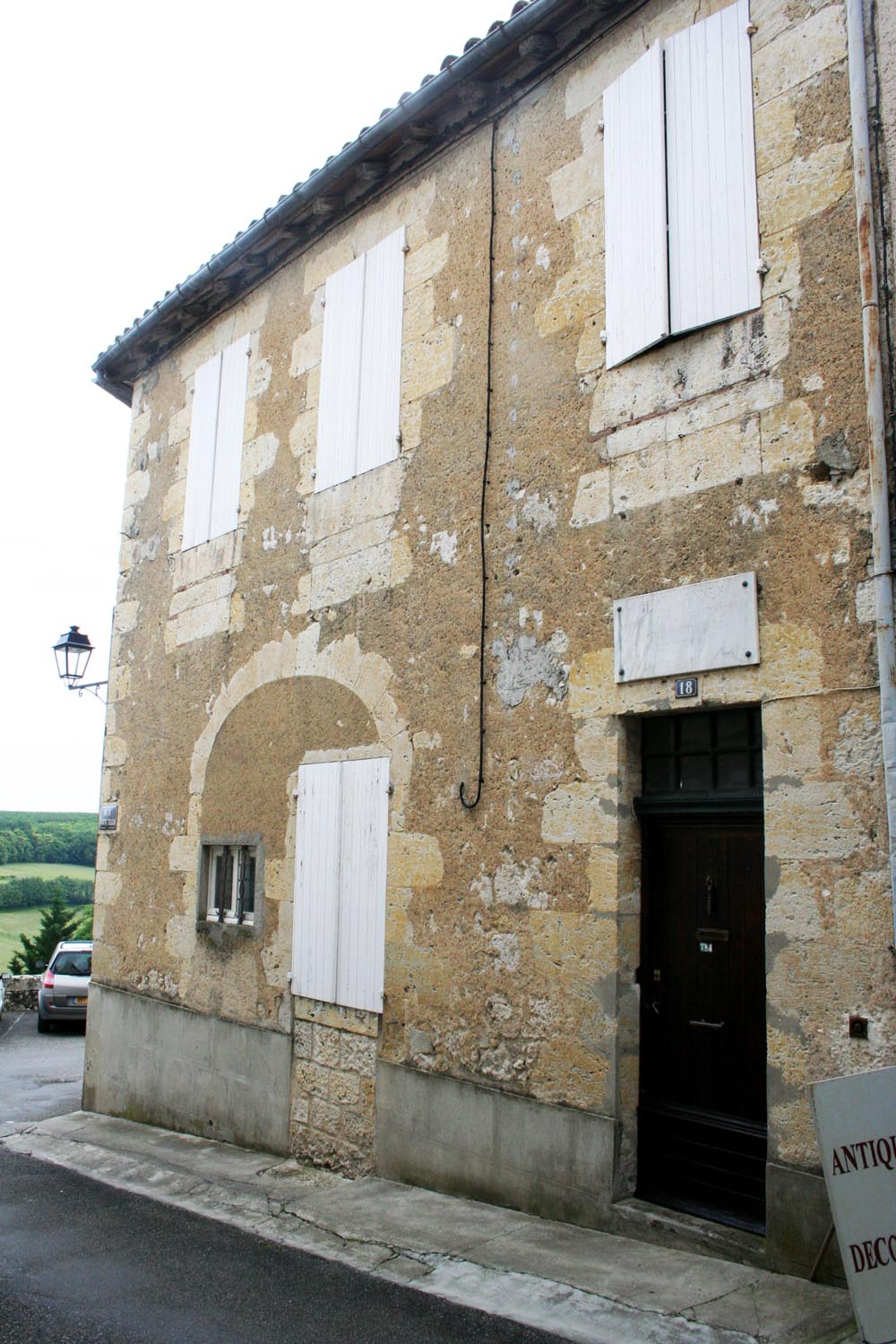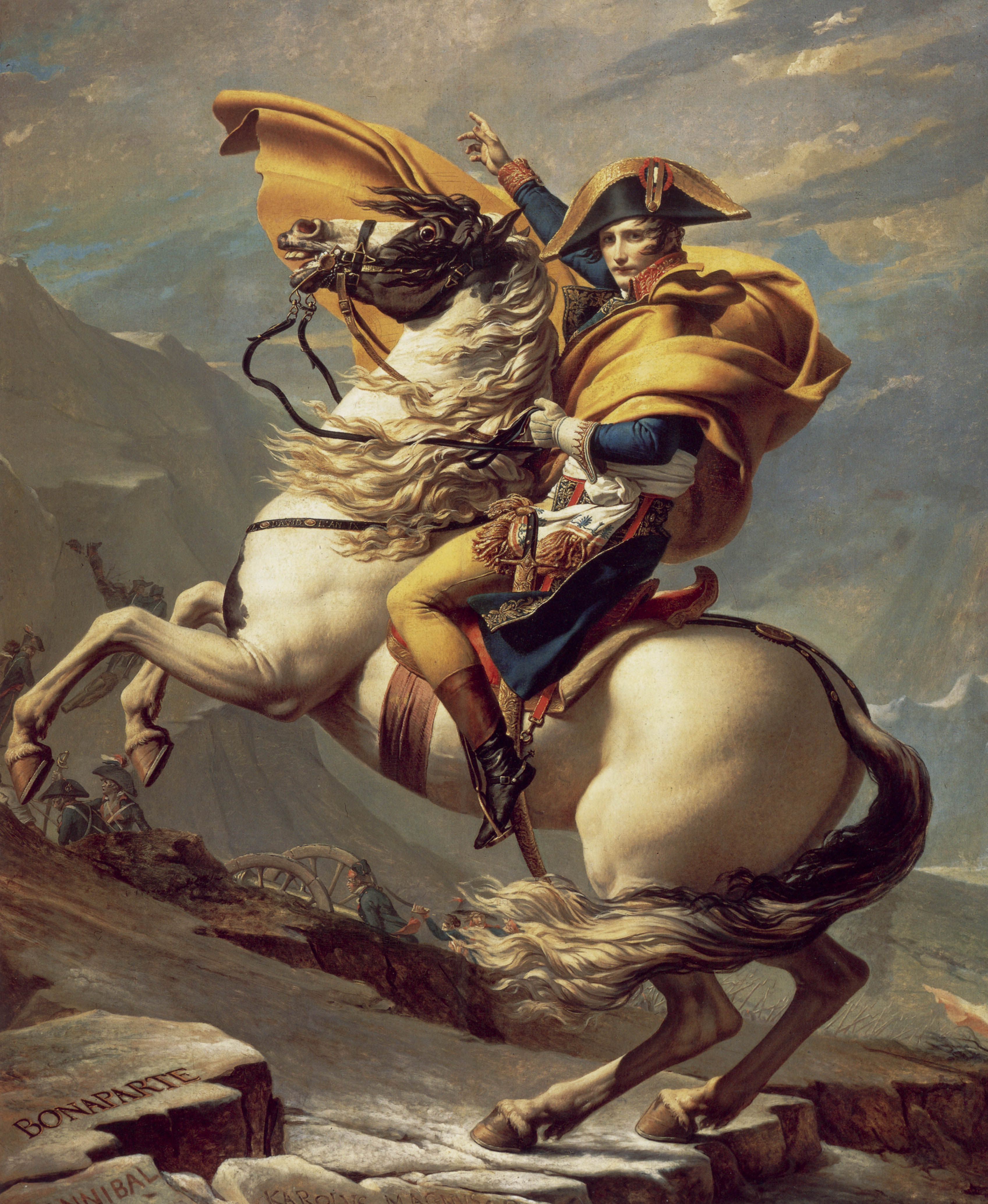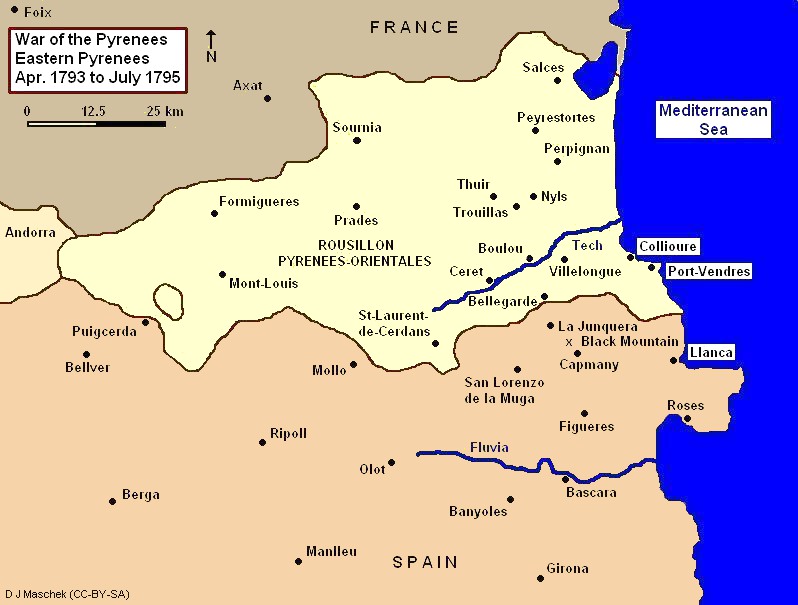|
Joachim Jérôme Quiot Du Passage
Joachim Jérôme Quiot du Passage (; 2 February 1775 – 12 January 1849) was a French military leader who served in the French Revolutionary Wars and Napoleonic Wars. Military career Early career Joachim Jérôme Quiot du Passage joined the 3rd Volunteer Battalion of Drôme under Claude-Victor Perrin in the fall of 1791, when he was just sixteen. Assigned to the Army of the Alps, his unit elected him captain in 1793. He first saw battle at the siege of Toulon before being transferred to the Army of the Eastern Pyrenees. Quiot du Passage was restationed with the Army of Italy following the 1795 Peace of Basel that ended the War of the Pyrenees. He served under Napoleon Bonaparte during his 1796-1799 campaign in Italy. He was reunited with Perrin, now a general, and served as Perrin’s aide-de-camp. Quiot was wounded at the Battle of Rivoli and later commanded the left wing of Perrin’s division during the Battle of Marengo, which drove Austria out of Italy.Mullié, ... [...More Info...] [...Related Items...] OR: [Wikipedia] [Google] [Baidu] |
Alixan
Alixan (; ) is a Communes of France, commune in the Drôme Departments of France, department in southeastern France. Valence TGV station, in the west of the commune, has rail connections to Valence, Grenoble, Paris, Lyon, Marseille, Montpellier and several other destinations. Population See also *Communes of the Drôme department References Communes of Drôme Dauphiné {{Drôme-geo-stub ... [...More Info...] [...Related Items...] OR: [Wikipedia] [Google] [Baidu] |
Army Of The Alps
The Army of the Alps (''Armée des Alpes'') was one of the French Revolutionary armies. It existed from 1792–1797 and from July to August 1799, and the name was also used on and off until 1939 for France's army on its border with Italy. 1792–1797 The Army of the Alps was created by a decree of the French Convention on 1 October 1792 which divided the Army of the Midi into the Army of the Alps and the Army of the Pyrenees. On 1 November 1793 it was itself divided into the Army of Savoy and the Army of Italy by a ''conseil exécutif'' decree. Following the decrees of 27–29 November 1792 which brought Savoy into the First French Republic under the name of Mont-Blanc department the Army of Savoy was renamed the Army of the Alps, before having the Army before Lyon split off from it between 8 August and 29 October 1793. The Army of the Alps was suppressed by a decree of 21 August 1797 (21 Fructidor year V), put into effect on 13 September, with its men and theatre transferr ... [...More Info...] [...Related Items...] OR: [Wikipedia] [Google] [Baidu] |
Battle Of Austerlitz
The Battle of Austerlitz (2 December 1805/11 Frimaire An XIV French Republican calendar, FRC), also known as the Battle of the Three Emperors, was one of the most important military engagements of the Napoleonic Wars. The battle occurred near the town of Slavkov u Brna, Austerlitz in the Austrian Empire (now Slavkov u Brna in the Czech Republic). Around 158,000 troops were involved, of which around 24,000 were killed or wounded. The battle is often cited by military historians as one of Napoleon's tactical masterpieces, in the same league as other historic engagements like Hannibal's Battle of Cannae, Cannae (216 BC) or Alexander the Great's Battle of Gaugamela, Gaugamela (331 BC).Byron Farwell, Farwell p. 64. "Austerlitz is generally regarded as one of Napoleon's tactical masterpieces and has been ranked as the equal of Arbela, Cannae, and Leuthen."Trevor N. Dupuy, Dupuy p. 102 Note: Dupuy was not afraid of expressing an opinion, and he classified some of his subjects as Great ... [...More Info...] [...Related Items...] OR: [Wikipedia] [Google] [Baidu] |
Battle Of Ulm
The Battle of Ulm on 16–19 October 1805 was a series of skirmishes, at the end of the Ulm Campaign, which allowed Napoleon I to trap an entire Austrian army under the command of Karl Freiherr Mack von Leiberich with minimal losses and to force its surrender near Ulm in the Electorate of Bavaria. Background In 1805, the United Kingdom, the Austrian Empire, Sweden, and the Russian Empire formed the Third Coalition to overthrow the French Empire. When Bavaria sided with Napoleon, the Austrians, 72,000 strong under Mack, prematurely invaded while the Russians were still marching through Poland. The Austrians expected the main battles of the war to take place in northern Italy, not Germany, and intended only to protect the Alps from French forces. A popular but apocryphal legend has it that while the Austrians used the Gregorian calendar, the Russians were still using the Julian calendar. This meant that their dates did not correspond, and the Austrians were brought i ... [...More Info...] [...Related Items...] OR: [Wikipedia] [Google] [Baidu] |
Jean Lannes
Jean Lannes, 1st Duke of Montebello, Prince of Siewierz (; 10 April 1769 – 31 May 1809), was a French military commander and a Marshal of the Empire who served during both the French Revolutionary and Napoleonic Wars. He was one of Napoleon's most daring and talented generals, and is regarded by many as one of history's greatest military commanders. Napoleon once commented on Lannes: "I found him a pygmy and left him a giant". A personal friend of the emperor, he was allowed to address him with the familiar '' tu'', as opposed to the formal '' vous''. Early life Lannes was born in the small town of Lectoure,Dunn-Pattison, p. 117. in the province of Gascony in Southern France. He was the son of a small landowner and merchant, Jeannet Lannes (1733–1812), son of Jean Lannes (d. 1746), a farmer, and his wife, Jeanne Pomiès (d. 1770), and paternal grandson of Pierre Lane and wife Bernarde Escossio (both died in 1721), and wife Cécile Fouraignan (1741–1799), daughter o ... [...More Info...] [...Related Items...] OR: [Wikipedia] [Google] [Baidu] |
Austria
Austria, formally the Republic of Austria, is a landlocked country in Central Europe, lying in the Eastern Alps. It is a federation of nine Federal states of Austria, states, of which the capital Vienna is the List of largest cities in Austria, most populous city and state. Austria is bordered by Germany to the northwest, the Czech Republic to the north, Slovakia to the northeast, Hungary to the east, Slovenia and Italy to the south, and Switzerland and Liechtenstein to the west. The country occupies an area of and has Austrians, a population of around 9 million. The area of today's Austria has been inhabited since at least the Paleolithic, Paleolithic period. Around 400 BC, it was inhabited by the Celts and then annexed by the Roman Empire, Romans in the late 1st century BC. Christianization in the region began in the 4th and 5th centuries, during the late Western Roman Empire, Roman period, followed by the arrival of numerous Germanic tribes during the Migration Period. A ... [...More Info...] [...Related Items...] OR: [Wikipedia] [Google] [Baidu] |
Battle Of Marengo
The Battle of Marengo was fought on 14 June 1800 between French forces under the First Consul Napoleon Bonaparte and Austrian forces near the city of Alessandria, in Piedmont, Italy. Near the end of the day, the French overcame General Michael von Melas's surprise attack, drove the Austrians out of Italy and consolidated Bonaparte's political position in Paris as First Consul of France in the wake of his coup d'état the previous November. Surprised by the Austrian advance toward Genoa in mid-April 1800, Bonaparte hastily led his army over the Alps in mid-May and reached Milan on 2 June. After cutting Melas's line of communications by crossing the river Po and defeating '' Feldmarschallleutnant'' (FML) Peter Karl Ott von Bátorkéz at Montebello on 9 June, the French closed in on the Austrian Army, which had massed in Alessandria. Deceived by a local double agent, Bonaparte dispatched large forces to the north and the south, but the Austrians launched a surprise ... [...More Info...] [...Related Items...] OR: [Wikipedia] [Google] [Baidu] |
Battle Of Rivoli
The Battle of Rivoli (14 January 1797) was a key military engagement during the War of the First Coalition near the village of Rivoli Veronese, Rivoli, then part of the Republic of Venice. In the climax of the Italian Campaign of 1796-1797, Italian campaign of 1796-1797, the outnumbered French Army of Italy (France), Army of Italy commanded by General Napoleon, Napoleon Bonaparte decisively defeated the attacking Austrian army commanded by Feldzeugmeister, General of the Artillery Jozsef Alvinczi, who was attempting to march south in a fourth and final attempt to relieve the Siege of Mantua (1796-1797), siege of Mantua. The French victory at Rivoli further demonstrated Bonaparte's capability and deftness as a military commander, and led to the Austrian surrender of Mantua in February, French consolidation of northern Italy, and ultimately France's victory over Austria in the war later that year. Forces See order of battle at the Battle of Rivoli. Prelude Alvinczi's plan was to ... [...More Info...] [...Related Items...] OR: [Wikipedia] [Google] [Baidu] |
Italian Campaigns Of The French Revolutionary Wars
The Italian campaigns of the French Revolutionary Wars (1792–1801) were a series of conflicts fought principally in Northern Italy between the French Revolutionary Army and a Coalition of Austria, Russia, Piedmont-Sardinia, and a number of other Italian states. The campaign of 1796-1797 brought prominence to Napoleon Bonaparte, a young, largely unknown commander, who led French forces to victory over numerically superior Austrian and Sardinian armies. First Coalition (1792–1797) The War of the First Coalition broke out in autumn 1792, when several European powers formed an alliance against Republican France. The first major operation was the annexation of the County of Nice and the Duchy of Savoy (both states of the Kingdom of Piedmont-Sardinia) by 30,000 French troops. This was reversed in mid-1793, when the Republican forces were withdrawn to deal with a revolt in Lyon, triggering a counter-invasion of Savoy by the Kingdom of Piedmont-Sardinia (a member of the Fi ... [...More Info...] [...Related Items...] OR: [Wikipedia] [Google] [Baidu] |
Napoleon Bonaparte
Napoleon Bonaparte (born Napoleone di Buonaparte; 15 August 1769 – 5 May 1821), later known by his regnal name Napoleon I, was a French general and statesman who rose to prominence during the French Revolution and led Military career of Napoleon, a series of military campaigns across Europe during the French Revolutionary and Napoleonic Wars from 1796 to 1815. He led the French First Republic, French Republic as French Consulate, First Consul from 1799 to 1804, then ruled the First French Empire, French Empire as Emperor of the French from 1804 to 1814, and briefly again in 1815. He was King of Italy, King of Kingdom of Italy (Napoleonic), Italy from 1805 to 1814 and Protector of the Confederation of the Rhine, Protector of the Confederation of the Rhine from 1806 to 1813. Born on the island of Corsica to a family of Italian origin, Napoleon moved to mainland France in 1779 and was commissioned as an officer in the French Royal Army in 1785. He supported the French Rev ... [...More Info...] [...Related Items...] OR: [Wikipedia] [Google] [Baidu] |
War Of The Pyrenees
The War of the Pyrenees, also known as War of Roussillon or War of the Convention, was the Pyrenees, Pyrenean front of the First Coalition's war against the First French Republic. It pitted Revolutionary France against the kingdoms of History of Spain (1700–1810), Spain and Kingdom of Portugal, Portugal from March 1793 to July 1795 during the French Revolutionary Wars. The war was fought in the eastern and western Pyrenees, at the French port of Toulon, and at sea. In 1793, a Spanish army invaded Roussillon in the eastern Pyrenees and maintained itself on French soil through April 1794. The French Revolutionary Army drove the Spanish Army back into Catalonia and inflicted a serious defeat in November 1794. After February 1795, the war in the eastern Pyrenees became a stalemate. In the western Pyrenees, the French began to win in 1794. By 1795, the French army controlled a portion of northeast Spain. The war was brutal in at least two ways. The Committee of Public Safety dec ... [...More Info...] [...Related Items...] OR: [Wikipedia] [Google] [Baidu] |







